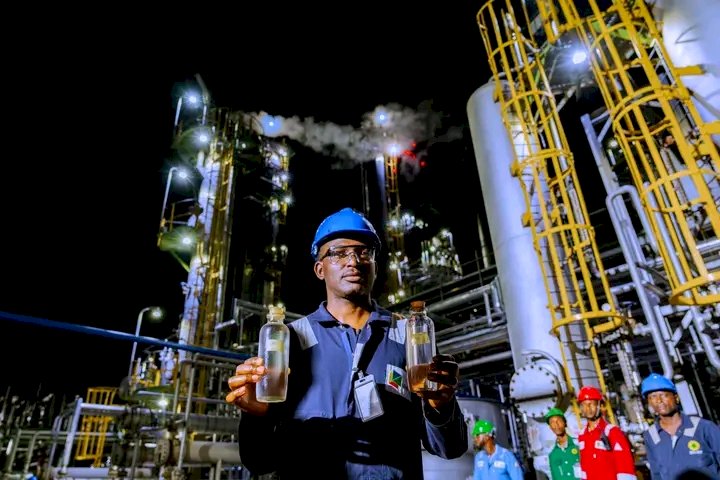P’Harcourt refinery working, but won’t reduce petrol price — PENGASSAN
PENGASSAN National President, Festus Osifo, during the association’s National Executive Council Meeting held on Tuesday, December 3, in Abuja

The Petroleum and Natural Gas Senior Staff Association of Nigeria (PENGASSAN) has confirmed that the Port Harcourt refinery, with a production capacity of 60,000 barrels per day, is operational and currently producing various refined petroleum products, including diesel, kerosene, and petrol.
PENGASSAN National President, Festus Osifo, during the association’s National Executive Council Meeting held on Tuesday, December 3, in Abuja, dispelled doubts about the refinery’s operations but clarified that the refinery’s operations would not lead to a reduction in petrol prices, highlighting that the current value of the naira against foreign currency plays a significant role in determining the price of refined products
He said;
“The confirmation I have today is that the refinery is working. However, I need to explain the refining process. First, we appreciate Nigerians for holding the government accountable, as we must ensure the workability of our assets. We cannot just accept everything the government tells us; we must verify it.
“We are also pleased with the media’s efforts to keep the government accountable regarding the refinery’s progress. We conducted checks with our members working there.
The fractional distillation unit, commonly known as the CDU, processes crude oil by heating it at different temperatures to produce various products.”
Osifo further explained that while the Port Harcourt refinery produces diesel, kerosene, and naphtha, the refining process for petrol is still incomplete. Maintenance is ongoing, and naphtha is currently being blended with other materials to produce petrol, but the unit that produces reformate, a key ingredient, is still being finished.
“The greatest challenge is the weakness of our currency.
“With the naira trading at 1 dollar to 1,700 naira, the cost of goods, including petroleum products, will remain high,” Osifo explained.




















